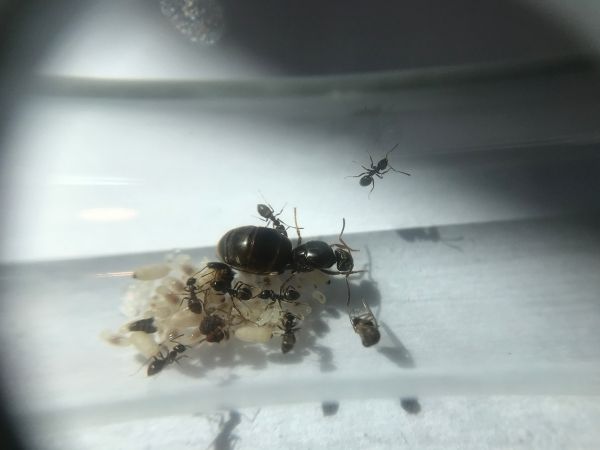This week, scientists of the Institute of Bee Health of the University of Bern have published an article in the peer-reviewed journal Communications Biology, which shows how even low doses of neonicotinoid insecticides, as they may realistically occur in contaminated soils, adversely affect the development of black garden ants (Lasius niger).
"Ants are one of the most important animal groups on our planet. However, they are also affected by the recently observed global declines in abundance and diversity of insects", says Daniel Schläppi of the Institute of Bee Health of the University of Bern, main author of the study. Evidence suggests that pesticides are among the factors responsible for the observed declines. "One problem of these substances is their persistence and the potential to contaminate soils and water, even in areas in which they are not applied", says co-author Gaétan Glauser from the University of Neuchâtel.
But so far, no data existed to show how exposure to low concentrations, which do not induce direct mortality, affect ants in the long run. The data, collected at the University of Bern in cooperation with Agroscope and the University of Neuchâtel, clearly demonstrate previously overlooked long-term effects, which are not detectable during the first year of colony development. The results are published in "Communications Biology", an Open-Access Journal of Nature. According to the authors, this study highlights the importance to develop sustainable agricultural practices that incorporate reduced use of agro-chemicals to prevent irreparable damages to natural ecosystems.
Continue reading at University of Bern
Image via University of Bern


